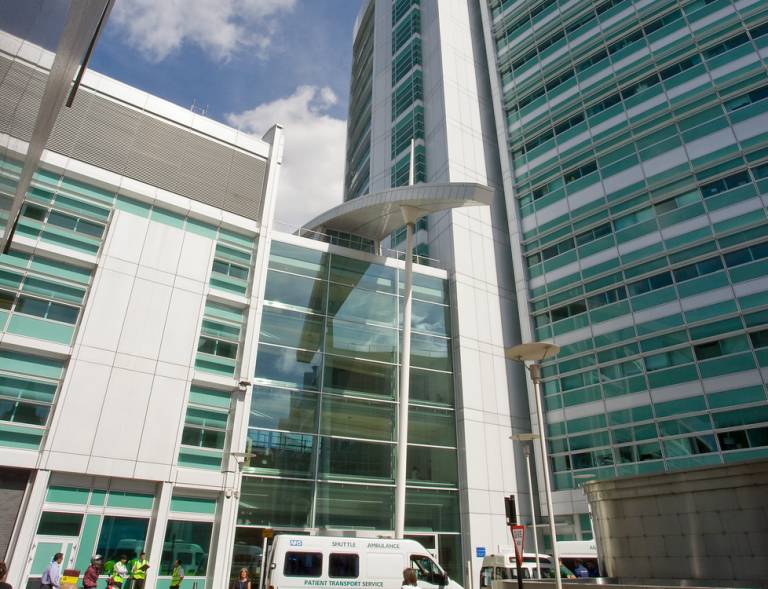UCLH/UCL NIHR Biomedical Research Centre awarded £90m
15 December 2022
In October 2022, the National Institute for Health Research (NIHR) awarded nearly £800 million to 20 Biomedical Research Centres across the UK.

The UCLH/UCL NIHR Biomedical Research Centre (BRC) was one of only two centres to be awarded over £90 million.
NIHR BRCs are partnerships between healthcare professionals and academics in the country’s leading NHS trusts and universities.
The funding announced will be spread over five years from December 2022 to November 2027 and will directly benefit patients through the development of ground-breaking new treatments and new techniques to diagnose diseases.
UCLH Chief Executive David Probert said: “This funding award is fantastic news and I want to congratulate everyone at UCLH and UCL involved in this achievement. Our strong partnership with UCL in research is key to the care we are able to offer at UCLH.”
Professor Bryan Williams, UCL Chair of Medicine, BRC Director and UCLH Director of Research, said: “This was a very competitive funding round and our success is testament to the strength of our partnership working and the world class strength of our research across a number of areas. We are very pleased to receive this funding and I want to acknowledge the outstanding colleagues who have made this possible. This funding which will enable us to continue to deliver ground-breaking research in a number of areas including cancer, neurological diseases, infection and cardiovascular diseases.
“Ultimately this is about improving the outcomes for patients – locally, nationally and internationally – who will benefit from this funding, thanks to innovations in care made possible by the BRC, changing and saving lives.”
Healthcare engineering and imaging (HE&I) theme
Professor Daniel Alexander, Director of the Centre for Medical Image Computing (CMIC), leads the healthcare engineering and imaging theme alongside co-lead, Professor Rebecca Shipley, Director of the IHE.
The theme board members include:
- Professor Shonit Punwani, UCL Centre for Medical Imaging
- Professor Frederik Barkhof, UCL Queen Square Institute of Neurology and UCL Medical Physics and Biomedical Engineering
- Professor Danail Stoyanov, Professor of Robot Vision, UCL Computer Science, and Director of the Wellcome/EPSRC Centre for Interventional and Surgical Sciences (WEISS)
The mission of the HE&I theme is to enable patient benefit and NHS impact by bridging UCL’s world-leading engineering and imaging research to clinical needs. The theme ensures that UCLH clinical research, trials and practice exploit the latest technologies and innovations from UCL.
Due to its interdisciplinary nature, the HE&I theme encapsulates a wide range of expertise, from computational modelling to material science, imaging to robotics and electrical engineering.
Given its breadth, the HE&I theme is broken into four subthemes:
Imaging Methodology
- enabling personalised medicine through more sensitive/specific imaging, accessibility and early-detection through imaging technologies for community-deployment especially areas of greatest disease burden
Imaging Biomarkers
- to underpin accurate, robust, and consistent end-points in imaging trials and clinical support systems. This expedites new treatments that address patient need and democratizes specialist knowledge/capability by enabling deployment to areas with the greatest disease burden
Healthcare Engineering
- will deliver cost-effective digital/medical technologies for timely detection/diagnostics/intervention addressing key challenges in the NHS Long Term Plan (e.g. healthy ageing, alleviating primary/community care burden) informed by community, clinical and patient engagement
Minimally-invasive Interventions
- for improving surgical precision, performance, capability, and outcomes; reducing trauma/recovery time, while increasing availability of interventional treatment
Learn more about the HE&I theme on the UCLH/UCL NIHR BRC website.
 Close
Close

